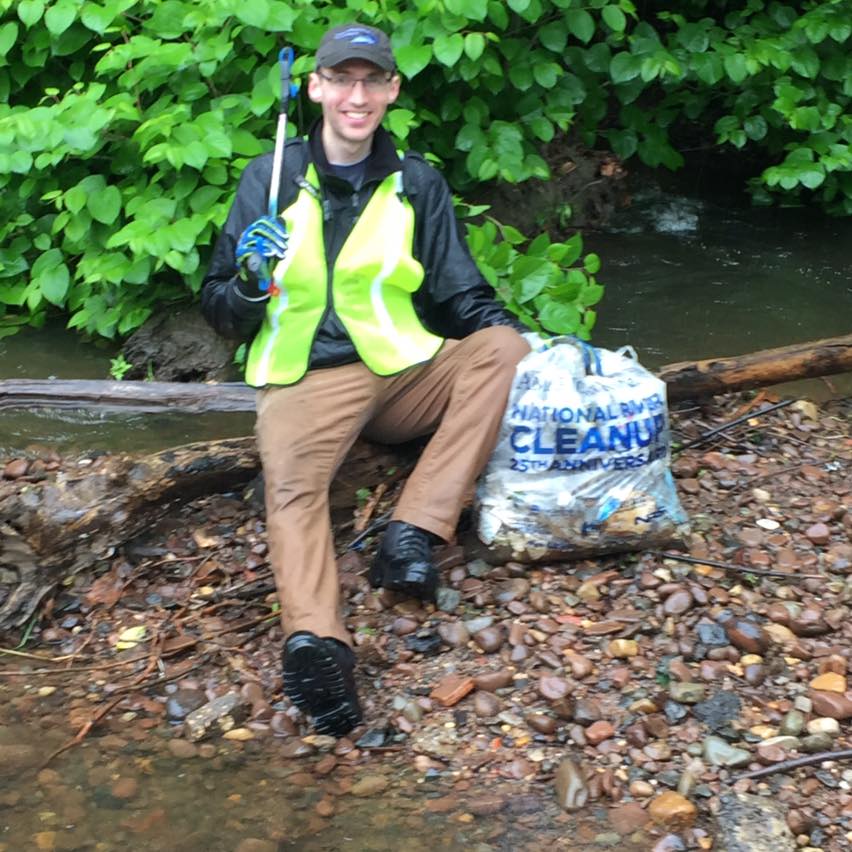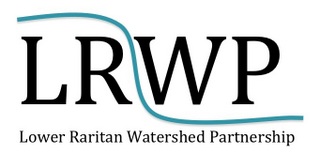An Interview with LRWP Board Member Anton Getz
Interview by Emily Koai, LRWP Spring 2020 Raritan Scholar
Anton Getz, LRWP’s newest board member, is a Mapping Specialist with Michael Baker International, where he is the GIS Lead, Project Manager, and Instructor for their Floodplain Management Division. Volunteers for LRWP’s stream clean-ups will likely remember Anton as the fellow “in the water” during our events, where he helps strategize safe removal of large items from our streams. Anton has a background in geography, and is passionate about environmental stewardship and sustainability, natural resource conservation, clean water advocacy, sustainable land use, historic preservation, and local food systems.

EK: Could you tell us a little about yourself and your background?
AG: I have lived in the Lower Raritan Watershed my whole life. I went to Rutgers and studied Geography, and now work on flood hazard mapping, mitigation, and risk communication for a living. I have a love and appreciation for nature and the outdoors and have a known bad habit of taking too many outdoorsy photos. I’m also an animal person and have always had dogs as a companion.
EK: Did you have any passion projects in your career that led you to where you are today?
AG: I have been doing consulting work for FEMA’s National Flood Insurance Program for over a decade. This work is mostly focused on floodplain mapping, but also includes working on regulations, insurance implications, and hazard mitigation. The FEMA program has helped me see how our land development patterns have gravitated towards water over time. Serious flood hazard exist that are not obvious to normal folks on a day-to-day basis. It is so difficult to successfully communicate data, hazards, and risks to people! This work has shown how interdisciplinary water issues are—public safety, environmental health, public policy, economic activity, and social “sense-of-place” all play a role in our relationship with water.
EK: How has working with the LRWP helped enhance your personal goals for the watershed?
AG: I have been doing cleanups with LRWP for few years and joined the board earlier in 2020. We had a full slate of event-planning for the year until COVID-19 hit. So, I would say goals and progress have been slowed for the moment, but I hope that I can help grow the cleanup program, recreational activities, and donor support.
EK: How have you encouraged engagement with the watershed in your community?
AG: I’m more of a doer than a talker. I stay late at cleanups! Sometimes to the dismay of the organizers…and I work hard. Perhaps you can call it inspiration through action.
EK: Why are stream cleanups important with regard to community engagement?
AG: Stream cleanups personalize the impact of our collective human activities. We can be very insulated from the full life cycle of our consumption choices—not seeing where our stuff came from or where it goes after we are done with it. Doing a stream cleanup sheds lights on the question of where it goes, and even where it came from. “Why are there so many pieces of Styrofoam coffee cups in the river? How did a municipal recycling bin get into the river? Why are there plastics bottles filled with pee in the rivers?” With this knowledge, communities can make informed decisions about collective and personal activities. Do they want to zone and approve more businesses that produce single-use litter in their towns? Will individuals choose to purchase more package-less food from a farmer’s market? And so on.
EK: How do you see this work progressing in the future?
AG: We were trending towards and starting to plan more cleanups and more community events with growing and diversified engagement. The LRWP has certainly impressed me with its ability to attract and engage a really diversified group of supporters and volunteers. However, uncertainty has descended upon us with the COVID-19 outbreak. When and how we return to community events is unknown at this point. I hope it does not discourage turnout when we do start to resume activities, but perhaps instead inspires people to act more locally on behalf of the health of the environment and people.
EK: What is your message to anyone that wants to be more engaged?
AG: I am relatively new to the environmental non-profit world in terms of taking action beyond what I do on my own, at home, such as limiting water and energy usage, eating locally, taking care of material items so they last, etc. So it’s never too late to start. My advice would be to find a cause you believe in, talk to people involved with that cause, ask questions, and volunteer your time. It will open up doors.
